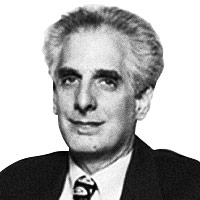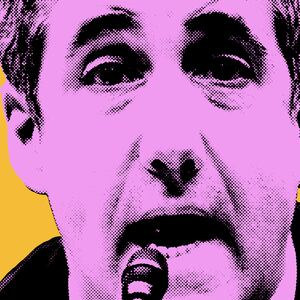Michael Cohen testified Wednesday that President Donald Trump “suggested” he should lie to Congress about negotiations to build a Trump Tower in Moscow during the 2016 presidential campaign. There has been much debate over whether Trump’s alleged conduct was criminally wrongful; some have suggested that Trump might not bear liability because he did not directly instruct Cohen to lie. One of the nation’s preeminent jurists, Justice Brett Kavanaugh, however, is on the record squarely rejecting this defense.
When he was a young prosecutor, Kavanaugh argued to Congress that President Bill Clinton not only broke the law by engaging in strikingly similar acts of witness tampering, but indeed that such conduct “may constitute grounds for impeachment.”
In 1998, Independent Counsel Ken Starr tasked Kavanaugh with principal responsibility for authoring the sections of his report to Congress arguing that Clinton bore liability for various offenses that Starr and his team said ”may constitute” “high crimes and misdemeanors,” meriting impeachment. Among the principal alleged offenses was witness tampering and obstruction of justice.
I have previously explained that much of Kavanaugh’s obstruction of justice analysis applies to Trump’s ghostwriting of Donald Trump Jr.’s false statement about his Trump Tower meeting with a Russian operative. But the parallel between Clinton’s and Trump’s purported misconduct became all the more striking in the wake of Cohen’s public testimony before Congress.
In May 2017, as Cohen was preparing for his first appearances before the Senate and House Intelligence Committee, Trump called Cohen into a meeting in the Oval Office with his attorney, Jay Sekulow. According to Cohen, during the meeting, Trump repeatedly made statements that both the president himself and Cohen knew to be false. Specifically, Trump asserted that he had no “deal” and no “involvement” in Russia during the campaign. In fact, as Trump well knew, Cohen was actively pursuing a deal in Russia on Trump’s behalf throughout much of the campaign. The deal was for the development of a potential Trump Tower Moscow, a transaction that held the promise of hundreds of millions of dollars in profits for Trump and his family.
According to Cohen, Trump was not simply gaslighting him by stating a falsehood; rather, the president was implicitly—but, nonetheless, extremely clearly—telling his fixer to repeat the same lie. As Cohen explained, he knew his boss and how he communicated very well. As Cohen recounted, Trump had repeatedly told the lie that he had “no business” going on in Russia, in both public and private, for “many, many months” And at the end of the day, I knew exactly what he wanted me to say”; that is, Trump wanted Cohen to perjure himself for the boss, or like a mob boss.
That is just what Cohen did when he appeared in front of Congress several months later, including by falsely testifying that the Trump Tower negotiations terminated in January 2016, when in fact they actively continued until at least June of that year.
In his Starr Report argument, Kavanaugh argued that Clinton bore liability for potentially impeachment-worthy witness-tampering by engaging in strikingly similar conduct.
Soon after Clinton testified falsely about his relationship with Monica Lewinsky in a civil lawsuit brought by Paula Jones, he called his assistant Bettie Currie into a meeting at the White House. Clinton then proceeded to make a series of statements that both Currie and the President knew were wholly false, including that Currie was present during all of Clinton’s encounters with Lewinsky and that the president and Lewinsky had never been alone together. According to Currie, Clinton’s remarks were “more like statements than questions,” and she therefore inferred that the president wanted her to agree with him.
Kavanaugh argued that Clinton’s statements during this (and in a subsequent) conversation with Currie amounted to an implicit instruction to Currie to lie if she was ever called upon to testify, and therefore constituted obstruction of justice and witness tampering. Kavanaugh’s argument was, in fact, quite a stretch, including because—at the time Clinton spoke with Currie—the president was not even aware that there was a pending criminal investigation, and it was far from certain that Currie would even be called as a witness in the civil proceeding. Nonetheless, the Starr Report concluded that “[t]here is substantial and credible information that President Clinton endeavored to obstruct justice by attempting to influence the testimony of Betty Currie.”
By contrast, the facts Cohen recounted, if true, are far more compelling. On Cohen’s account, Trump “suggested” that Cohen lie during a White House meeting held in preparation for his then expected testimony before two congressional committees.
Furthermore, Cohen also testified that Cohen’s written testimony, which wholly falsely stated that the Moscow project was abandoned in early 2016, was submitted for review by Sekulow and at least one other Trump family lawyer. Given Trump’s active involvement in Cohen’s preparation, it is likely that the president himself also reviewed the document. But according to Cohen, neither Trump and Sekulow, nor the counsel for Ivanka Trump (whom Cohen said he kept updated on the Trump Tower Moscow project) commented upon, let alone corrected, the falsehoods.
(In an artfully drafted statement released after Cohen’s testimony, Sekulow denied that he had changed Cohen’s written testimony “to alter the duration of the Trump Tower Moscow negotiations . . . .”, but, since the initial draft contained the very same false account Cohen says that Trump urged him to advance, Sekulow’s statement effectively implies that Trump and his legal team approved false testimony.)
It is far from clear whether Special Counsel Robert Mueller will even address Trump’s potential criminal culpability in his upcoming report, let alone whether Attorney General William Barr will release the report to Congress or the public. But in the absence of an analysis from Mueller, members of Congress can look to the analysis that Kavanaugh wrote over 20 years ago. If they find the Supreme Court justice’s reasoning persuasive, legislators may well conclude that the president should be impeached.








